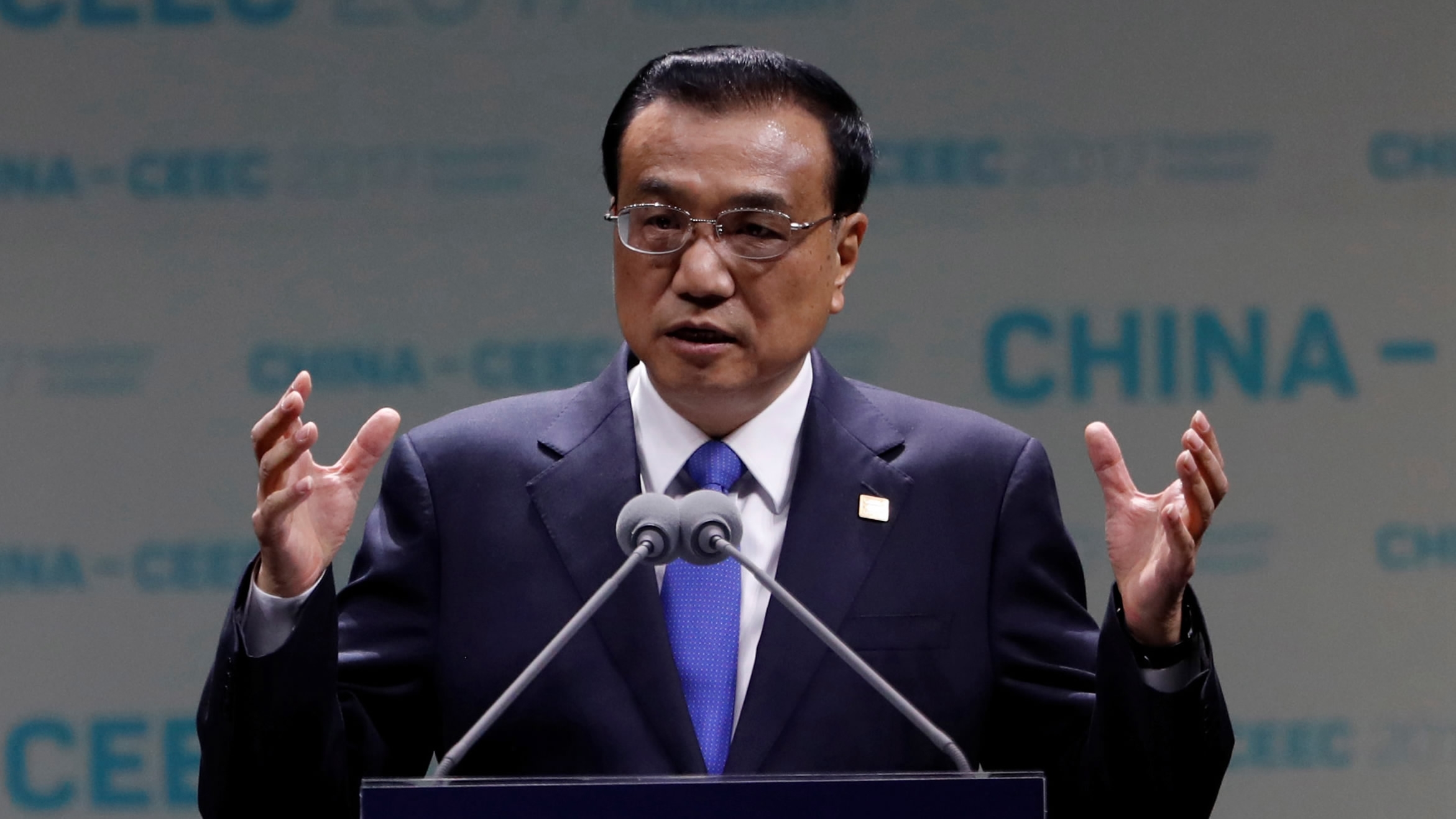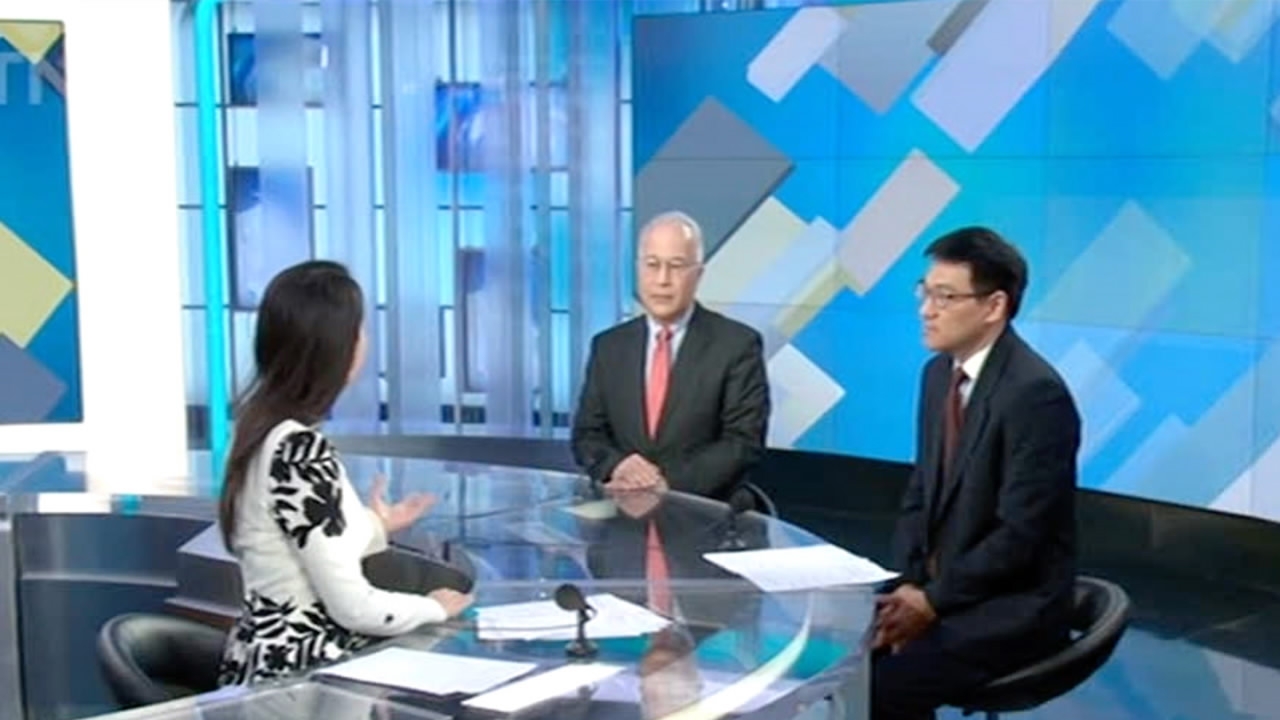China and 16 Central and Eastern European Countries (CEEC) have marked the fifth year of their partnership by signing deals on infrastructure, agriculture, energy, culture and education.
The countries pledged at the China-CEEC Economic and Trade Forum in Budapest, Hungary to ramp up their economic cooperation, insisting it was their main objective, even as China's attempt to forge greater links with the 16 has
met with suspicion in the West, particularly in Europe.
Experts pointed out that despite an increase in trade, Chinese investment in Central and Eastern Europe pales in comparison with other regions – so there is great scope for further growth.
"We can see positive potential," said Pro. Zhu Dandan of the China Foreign Affairs University.
The Chinese authorities see the developing partnership and the new deals as the perfect antidote to the criticisms.
Chinese Premier Li Keqiang even promised to make 2018 the year of China-CEEC people-to-people cooperation in his address at the opening ceremony of the summit.
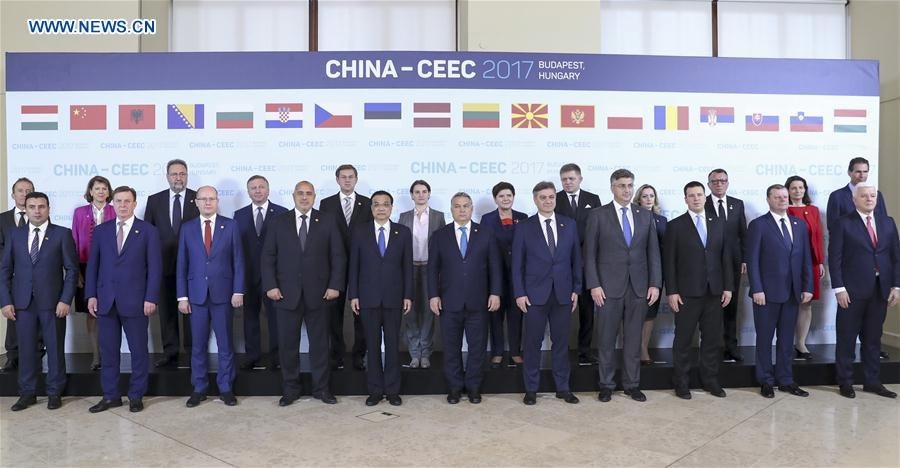
Chinese Premier Li Keqiang (5th L front) and other heads of government and officials of Central and Eastern European countries pose for a group photo at the China-CEEC forum in Budapest, Nov. 27. /Xinhua Photo
Chinese Premier Li Keqiang (5th L front) and other heads of government and officials of Central and Eastern European countries pose for a group photo at the China-CEEC forum in Budapest, Nov. 27. /Xinhua Photo
Discovering quality and accurate market
He used the speech to draw attention to areas within the so-called 16+1 partnership that are ripe for further development, such as agriculture.
Chinese consumers do not have much knowledge about CEEC produce as consumers, Li said, adding he would like to enjoy high-quality agricultural products from the region.
"It is estimated that China will import products worth eight trillion US dollars from overseas in the next five years," the Chinese premier said. "I hope Central and Eastern European countries will take a larger share of it."
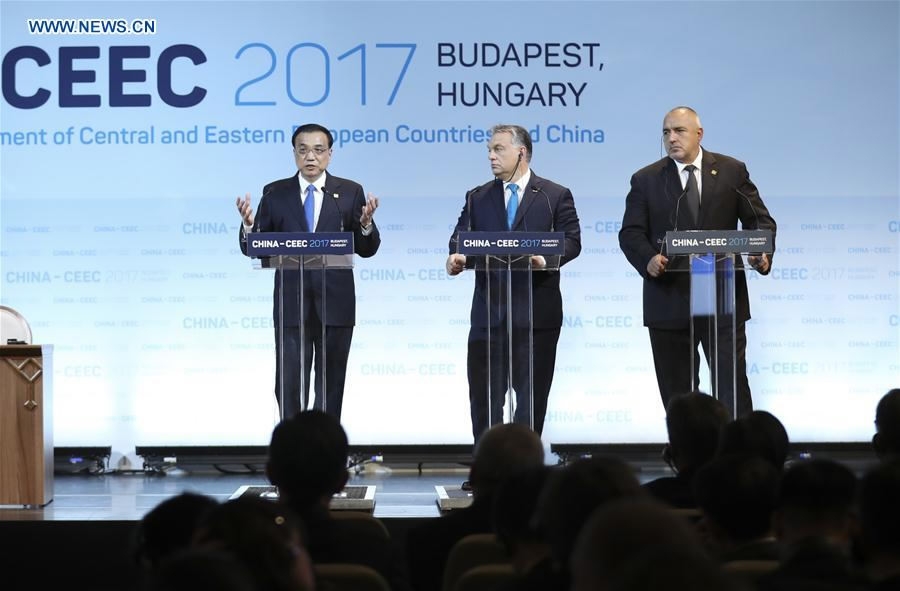
Chinese Premier Li Keqiang (L) meets the press with Hungarian Prime Minister Viktor Orban (C) and Bulgarian Prime Minister Boyko Borisov after the sixth meeting of heads of government of China and 16 Central and Eastern European countries in Budapest, Nov. 27. /Xinhua Photo
Chinese Premier Li Keqiang (L) meets the press with Hungarian Prime Minister Viktor Orban (C) and Bulgarian Prime Minister Boyko Borisov after the sixth meeting of heads of government of China and 16 Central and Eastern European countries in Budapest, Nov. 27. /Xinhua Photo
Finance will be the second key area, as Li announced the establishment China-CEEC Inter-Bank Association, which will receive two billion euros in loans from the China Development Bank. In addition, China will provide one billion US dollars to the China-CEEC Investment Cooperation Fund.
Progress was reported in big projects like the 2.1- billion-US-dollar Hungary-Serbia high-speed railway and a new coal-fueled power plant in Bosnia and Herzegovina.
China is also eyeing more culture and people-to-people exchanges, with a promise to provide 5,000 scholarships to students from CEE nations.
Not 'zero-sum' but 'win-win' for EU
As 11 of the 16 nations are EU members, some fear that China-CEEC cooperation will be a threat to EU integration.
But Chinese experts deny that China has any political ambition regarding the cooperation mechanism with the CEEC.
Wang Jianhui, deputy general manager from the R&D development of Capital Securities, told CGTN that other than EU and Russia, "China is the only one has no political pursuit in the region but just investments and business in favor of mutual benefits."
He said relations between China, Russia, CEEC and EU should be a mutually beneficial "quartet instead of three duets."
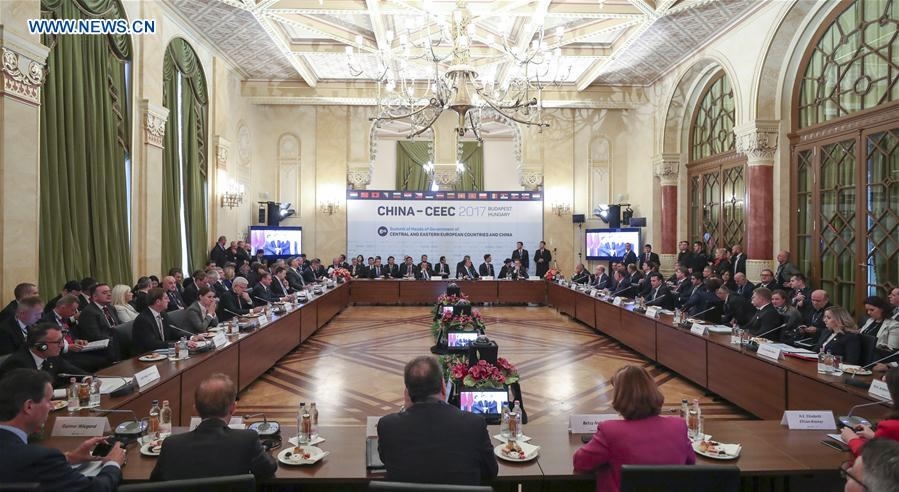
Chinese Premier Li Keqiang attends the sixth meeting of heads of government of China and 16 Central and Eastern European countries in Budapest, Nov. 27. /Xinhua Photo
Chinese Premier Li Keqiang attends the sixth meeting of heads of government of China and 16 Central and Eastern European countries in Budapest, Nov. 27. /Xinhua Photo
Einar Tangen, a current affairs commentator, also said China does not approach the CEEC with any ideological agenda but a genuine desire to spur global trade.
In his speech, Premier Li also said the China-CEEC cooperation is "not targeted at any third party, nor does it exclude a third party."
He added China supports non-EU countries of the 16 members joining the EU and also encourages them to support other international institutions and regional cooperation activities in order to make the 16+1 cooperation complementary to China-EU relations and also be conducive to world peace and development.
Fraser Cameron, director of the EU-Asia Center, said China understands that 11 EU members have to abide by EU rules and regulations on public procurement, impact assessment for environment and sustainability.
The European Commission raised concerns earlier this year about the construction proposal for the Hungary-Serbia railway as some processes may not have been in compliance with EU rules.
The flagship project for regional interconnectivity was placed as a top agenda item for this year's summit and the deal was finalized on Monday with construction on the Hungary portion likely to begin soon.
The railway project, in University of International Business and Economics Professor John Gong's perspective, is also a great case to prove that economic development in the area is in the interest of the EU overall. He he said the bloc should support the 16+1 cooperation mechanism.
He explained that while traditional trade routes for landlocked EU countries are seaports along the French, Dutch and German coasts, the railway project gives the EU a new and alternative solution to transport goods through a continental railroad.
Tangen agreed with Gong, saying EU currently does not provide alternatives to those landlocked countries but China's infrastructure projects can help.
Zhai Wei and Tian Dongdong, in their commentary article published in Xinhua, also said that "China is assisting Europe in transforming its once economically backward countries into its new growth engines."
Overall, Tangen asserted, "It's a door opening for both ways," and the cooperation between China and CEEC is a win-win rather than zero-sum game for EU.

